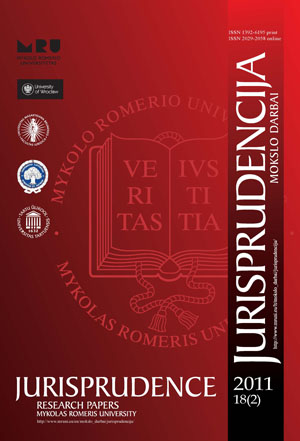Principle of Subsidiarity and ‘Embeddedness ’ of the European Convention on Human Rights in the Field of the Reasonable-Time Requirement: The Italian Case
Principle of Subsidiarity and ‘Embeddedness ’ of the European Convention on Human Rights in the Field of the Reasonable-Time Requirement: The Italian Case
Author(s): Francesco De Santis di NicolaSubject(s): International Law, Human Rights and Humanitarian Law
Published by: Mykolas Romeris University
Keywords: reasonable time; domestic remedies; principle of subsidiarity; interaction of jurisdictions; European Convention on Human Rights;
Summary/Abstract: The right to ‘domestic remedies’, which ideally connects ‘subsidiarity’ and ‘embeddedness’ of the ECHR in the legal systems of member States, is deemed to play a crucial role for the Strasbourg machinery survival as well as for an effective protection of human rights, especially in the field of the ‘reasonable-time’ requirement. In this respect the Italian case seems an excellent test. Once a compensatory remedy was introduced in the Italian legal system by Law No. 89 of 2001 (the ‘Pinto Act’), it soon appeared that such a remedy could be considered ‘effective’ in so far as it was implemented in accordance with the ECtHR’s jurisprudence. Therefore a legal tool for the interaction between ECtHR and Italian courts had to be found. Nevertheless, the results of this interaction might suggest that the domestic remedy has neither increased the protection of the reasonable-time requirement in Italy nor is it the final solution to the ECtHR’s overload.
Journal: Jurisprudencija
- Issue Year: 18/2011
- Issue No: 1
- Page Range: 7-32
- Page Count: 26
- Language: English

